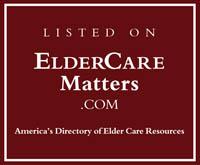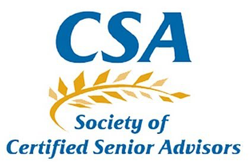In the 2000, almost 10 million people needed some form of long-term care in the United States. Of this population, 3.6 million (37%) were under age 65 and 6 million (63%) were over age 65 (Roger & Komisar, 2003). Almost 70% of people turning age 65 will need long-term care at some point in their lives. It is so important for you to begin to think about how you will handle the need for long-term care. Your path will be unique to you, and based on your preferences and circumstances.
There are several levels of Long Term Care, all dependent on your physical and mental capacity as well as your geographic location and finances.
In-home care. Provided by a licensed, insured, bonded agency
Assisted Living. This can be a Family Care Home, licensed for a maximum of six residents to major community from under 100 to several hundred. Housing, meals and assistance with Activities of Daily Living are provided.
Memory Care. Can be a part of an Assisted Living community or a stand-alone community. In addition to ADL’s these communities provide a “safe” environment which are most often “locked” and provide specialized programs for memory residents.
Skilled Nursing (Nursing Home). When the level of care grows greater than just the assistance with Activities of Daily Living and turn more towards Nursing assistance, a Skilled community is needed. Skilled communities are needed when there is rehab or long term medical needs; feeding tubes, special med requirements, special testing, wound care, etc.
Continuous Care Retirement Communities (CCRC’s). There are two primary models. One might involve a “buy in” where you purchase your residence along with an agreement to provide additional services or strictly “month to month” rentals. CCRC’s offer residents a continuum of care, from Independent Living through Skilled Care.
WHAT IS IMPORTANT? Being legally prepared as well as being equipped with the knowledge of costs and possible benefit programs available to your family.
Please let us share with you how important core documents, like a well written General Power of Attorney, giving gifting and trust creation authority as well as the Financial Power Attorney are as you prepare for Long Term Care and applying for Government Benefit Programs.
rick@carolinaestatecounsel.com
————————————————————————————————
Carolina Estate Counsel offers free consultations in your home, senior living community, your place of business or financial advisor’s office. We offer legal advice only and do not sell annuities, securities or insurance products.










